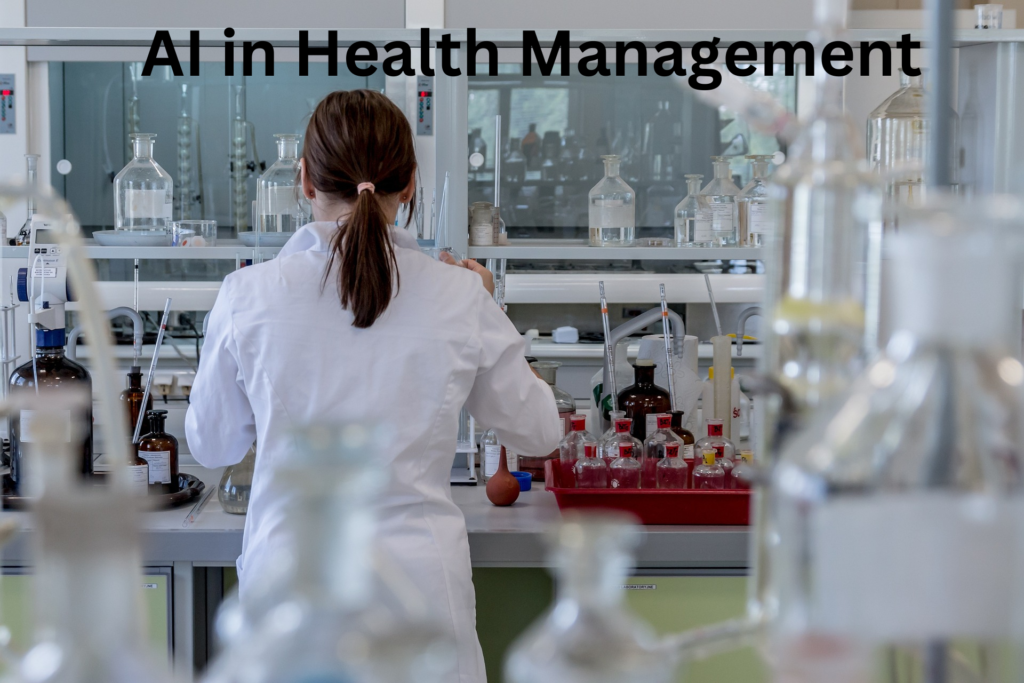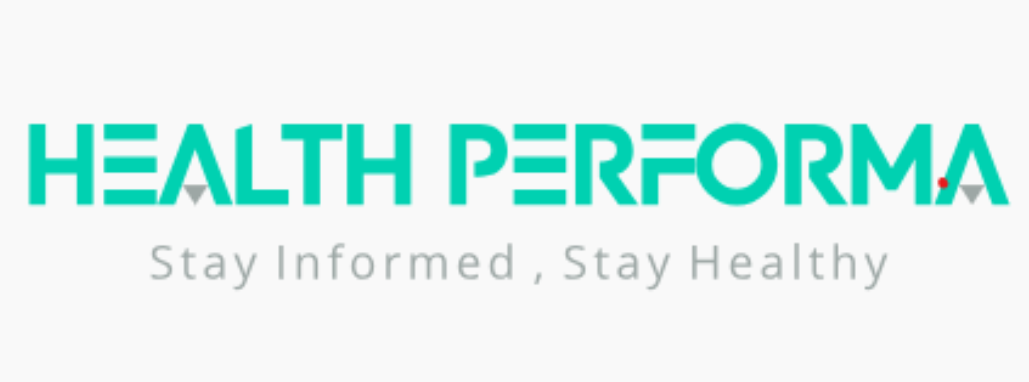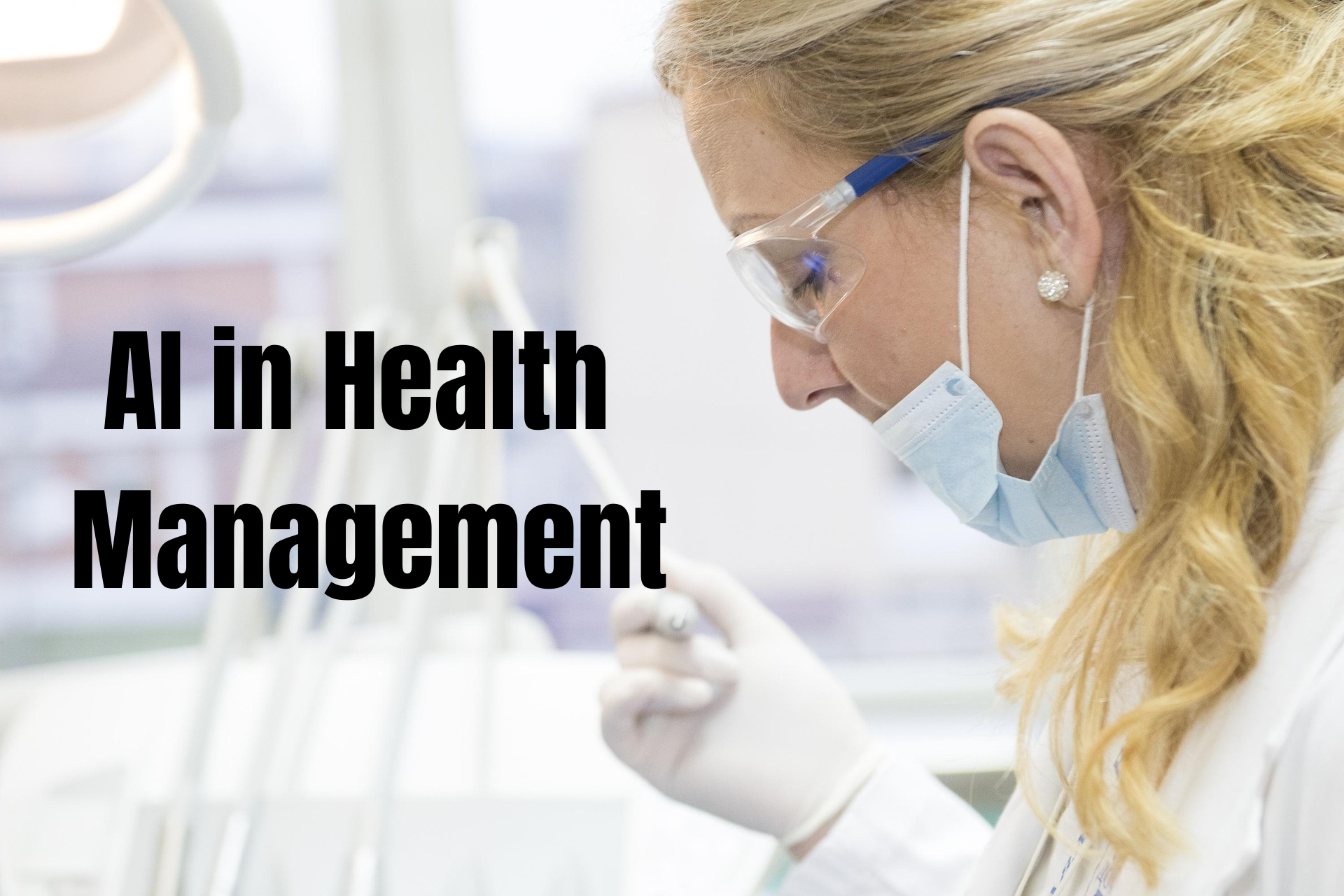The integration of Artificial Intelligence (AI) in health management is no longer a futuristic concept—it’s a present-day reality transforming the healthcare industry. From diagnosing diseases to personalized treatment plans, AI is revolutionizing how healthcare providers deliver services and how patients experience care. This blog post delves into the role of AI in health management, its applications, benefits, challenges, and the future it promises.
Table of Contents
Understanding AI in Health Management
AI in health management refers to the use of machine learning algorithms, natural language processing, robotics, and other AI-driven technologies to improve healthcare delivery. These tools analyze vast amounts of data, identify patterns, and provide actionable insights to enhance decision-making, streamline operations, and improve patient outcomes.
The healthcare industry generates enormous amounts of data daily, from electronic health records (EHRs) to medical imaging and genomic data. AI excels at processing and interpreting this data, making it an invaluable tool for health management. By leveraging AI, healthcare providers can optimize workflows, reduce costs, and deliver more accurate and personalized care.
Applications of AI in Health Management
AI’s applications in health management are vast and varied. Here are some of the most impactful use cases:
1. Diagnosis and Disease Detection
AI-powered diagnostic tools are revolutionizing how diseases are detected. Machine learning algorithms can analyze medical images, such as X-rays, MRIs, and CT scans, to identify abnormalities with remarkable accuracy. For example, AI systems can detect early signs of diseases like cancer, cardiovascular conditions, and neurological disorders, often with greater precision than human clinicians.
One notable example is Google’s DeepMind, which developed an AI system capable of detecting over 50 eye diseases by analyzing 3D retinal scans. Similarly, AI algorithms are being used to identify breast cancer in mammograms with a higher accuracy rate than radiologists.
2. Personalized Treatment Plans
AI enables the creation of personalized treatment plans by analyzing patient data, including medical history, genetic information, and lifestyle factors. This approach, known as precision medicine, ensures that treatments are tailored to individual patients, improving outcomes and reducing side effects.
For instance, IBM’s Watson for Oncology uses AI to analyze patient data and recommend personalized cancer treatment options based on the latest medical research and clinical guidelines.
3. Predictive Analytics
Predictive analytics powered by AI can forecast disease outbreaks, patient admissions, and even individual health risks. By analyzing historical and real-time data, AI can help healthcare providers anticipate and mitigate potential issues before they escalate.
During the COVID-19 pandemic, AI models were used to predict the spread of the virus, identify high-risk populations, and optimize resource allocation. This demonstrated the potential of AI in managing public health crises.
4. Administrative Efficiency
AI streamlines administrative tasks such as scheduling, billing, and claims processing. Natural language processing (NLP) tools can automate documentation, reducing the burden on healthcare staff and minimizing errors.
For example, AI-powered chatbots can handle patient inquiries, schedule appointments, and even assist with insurance claims, freeing up administrative staff to focus on more complex tasks.
5. Remote Patient Monitoring
Wearable devices and IoT-enabled tools collect real-time health data, which AI systems analyze to monitor patients remotely. This is particularly beneficial for managing chronic conditions and ensuring timely interventions.
Devices like the Apple Watch and Fitbit use AI to track heart rate, sleep patterns, and physical activity, providing users with insights into their health and alerting them to potential issues.
6. Drug Discovery and Development
AI accelerates drug discovery by analyzing vast datasets to identify potential drug candidates and predict their efficacy. This reduces the time and cost associated with bringing new medications to market.
For example, AI-driven platforms like Atomwise use machine learning to simulate drug interactions and identify promising compounds for further testing. This approach has the potential to revolutionize the pharmaceutical industry.
7. Mental Health Support
AI-powered chatbots and virtual therapists provide mental health support by offering counseling, monitoring mood changes, and suggesting coping strategies. These tools make mental health care more accessible and less stigmatized.
Apps like Woebot and Wysa use AI to deliver cognitive behavioral therapy (CBT) techniques, helping users manage stress, anxiety, and depression.
Benefits of AI in Health Management
Artificial Intelligence (AI) is revolutionizing healthcare, reshaping how providers, researchers, and patients approach medical care and health management. From predictive analytics and personalized treatment plans to improved diagnostic accuracy, AI has the potential to make healthcare more efficient, accessible, and patient-centric. This article explores the many ways AI is transforming health management and the benefits it brings to healthcare systems, professionals, and patients.
1. Improved Diagnostics and Early Detection
One of the most significant benefits of AI in health management is its ability to enhance diagnostic accuracy and enable early detection of diseases. AI-powered algorithms can analyze medical images, lab results, and other clinical data with remarkable precision, identifying patterns that may be too subtle for human clinicians to detect.
For example, AI systems are increasingly used in radiology to detect early signs of diseases like cancer. Studies have shown that AI can match or even surpass human radiologists in identifying abnormalities in medical images, such as mammograms, CT scans, and MRIs. This early detection is crucial for improving patient outcomes, as it allows for earlier interventions and treatments.
Additionally, AI can help identify risk factors for chronic conditions such as diabetes, heart disease, and Alzheimer’s by analyzing large datasets of patient information. By flagging high-risk patients before symptoms appear, healthcare providers can implement preventive measures, reducing the burden on healthcare systems and improving patient health.
2. Personalized Treatment Plans
AI’s ability to analyze vast amounts of data quickly and accurately enables the creation of personalized treatment plans tailored to individual patients. Personalized medicine, also known as precision medicine, focuses on customizing healthcare based on a patient’s genetic makeup, lifestyle, environment, and health history.
AI can sift through patient data, including genetic information, medical records, and real-time health monitoring data from wearable devices, to predict how a patient will respond to different treatments. For example, AI models can recommend the most effective chemotherapy regimens for cancer patients based on their unique genetic mutations, potentially improving treatment efficacy and reducing side effects.
By tailoring treatments to individual patients, AI enhances the quality of care, reduces trial-and-error approaches, and optimizes resource utilization in healthcare systems.
3. Efficient Drug Discovery and Development
AI is also accelerating drug discovery and development, a traditionally time-consuming and costly process. AI can analyze vast datasets, including molecular structures, clinical trial results, and real-world data, to identify potential drug candidates more quickly and accurately than conventional methods.
For example, AI algorithms can model the interactions between drugs and biological targets, predicting the effectiveness of new compounds before they are tested in clinical trials. This reduces the time and cost of drug development, as researchers can focus on the most promising candidates. AI is also being used to repurpose existing drugs for new therapeutic applications, providing faster treatment options for emerging diseases.
Moreover, AI-driven clinical trial designs can optimize patient selection, monitor trial progress in real-time, and predict trial outcomes, leading to more efficient and effective trials.
4. Enhanced Patient Monitoring and Remote Care
With the increasing use of wearable devices, mobile apps, and remote monitoring technologies, AI plays a crucial role in managing patient health outside traditional clinical settings. AI-powered systems can continuously analyze data from wearable devices, such as heart rate monitors, glucose sensors, and fitness trackers, to provide real-time insights into a patient’s health status.
For patients with chronic conditions, such as diabetes or heart disease, AI-enabled remote monitoring allows healthcare providers to detect anomalies and intervene before the patient requires hospitalization. This not only improves patient outcomes but also reduces the strain on healthcare resources.
Additionally, AI-driven telemedicine platforms can assess patient symptoms, recommend appropriate treatments, and even triage patients to the appropriate level of care. This enhances access to healthcare for patients in remote or underserved areas and reduces the need for unnecessary in-person visits, improving efficiency across healthcare systems.
5. Predictive Analytics for Population Health
AI’s ability to analyze large datasets makes it an invaluable tool for predictive analytics in population health management. By analyzing patient data at scale, AI can identify trends and patterns that help public health officials predict disease outbreaks, track the spread of infectious diseases, and allocate healthcare resources more effectively.
For example, during the COVID-19 pandemic, AI was used to model the spread of the virus, predict infection hotspots, and optimize the distribution of medical supplies, such as ventilators and personal protective equipment (PPE). AI-driven predictive analytics also enable healthcare systems to anticipate patient surges and prepare for increased demand on hospital capacity, staff, and supplies.
In the context of chronic disease management, AI can identify at-risk populations, predict disease progression, and recommend interventions that improve health outcomes while reducing healthcare costs.
6. Streamlined Administrative Processes
AI is not only transforming clinical care but also improving the efficiency of administrative processes in healthcare. Many routine tasks, such as appointment scheduling, billing, and claims processing, can be automated using AI-powered systems, reducing administrative burdens on healthcare staff and improving operational efficiency.
Natural language processing (NLP) tools can extract relevant information from patient records, transcribe medical notes, and automate coding for insurance claims. This reduces the risk of errors, speeds up reimbursement processes, and frees up healthcare professionals to focus on patient care.
AI chatbots are also being used to manage patient inquiries, schedule appointments, and provide basic medical information, improving the patient experience while reducing the workload for front-office staff.
7. AI-Assisted Surgery
AI is revolutionizing surgical procedures by enhancing precision and reducing risks. AI-assisted robotic surgery allows surgeons to perform complex procedures with greater accuracy, minimizing damage to surrounding tissues and reducing recovery times for patients.
For example, AI-driven robots can assist in minimally invasive surgeries, such as laparoscopic procedures, where precision is critical. The robots can analyze data from preoperative scans to guide the surgeon during the procedure, ensuring optimal placement of instruments and reducing the likelihood of complications.
AI can also predict patient outcomes based on preoperative data, allowing surgeons to make more informed decisions about surgical techniques and interventions. This enhances the safety and effectiveness of surgical procedures, leading to better patient outcomes.
8. Reduction in Human Error
AI’s capacity to process vast amounts of data rapidly and accurately makes it a valuable tool for reducing human error in healthcare. Medical errors, including misdiagnoses, medication errors, and procedural mistakes, are a significant concern in healthcare and can lead to serious harm or even death.
AI-driven decision support systems can assist healthcare providers by analyzing patient data and providing evidence-based recommendations for diagnosis, treatment, and medication management. This reduces the risk of human error and ensures that patients receive the most appropriate care based on the latest clinical guidelines and research.
AI can also help prevent errors in medication prescribing and administration by cross-referencing patient information, such as allergies, drug interactions, and medical history, to flag potential issues before they occur.
9. Cost Savings for Healthcare Systems
AI has the potential to significantly reduce healthcare costs by improving efficiency, reducing errors, and optimizing resource allocation. For example, AI-powered predictive analytics can help hospitals manage bed occupancy more effectively, ensuring that resources are used efficiently and reducing the need for costly emergency room visits and hospital readmissions.
AI can also streamline administrative tasks, reducing the need for manual data entry and processing, which can lead to cost savings for healthcare providers. Additionally, AI-driven drug discovery and clinical trial optimization can lower the costs of bringing new treatments to market, benefiting both healthcare systems and patients.
By improving patient outcomes, reducing errors, and increasing operational efficiency, AI has the potential to make healthcare more affordable and accessible to a broader population.
10. Continuous Learning and Improvement
One of the most exciting aspects of AI in health management is its ability to continuously learn and improve over time. Machine learning algorithms become more accurate as they are exposed to more data, enabling healthcare providers to refine treatment plans, optimize workflows, and improve patient outcomes.
For example, AI systems used in diagnostics can improve their accuracy as they process more medical images, while AI-driven predictive analytics models can become more precise in identifying at-risk patients as they analyze more health data.
This continuous learning and improvement mean that AI has the potential to drive ongoing advancements in healthcare, leading to better patient care and more efficient health management

Challenges and Ethical Considerations
While AI in health management holds immense promise, it also presents several challenges and ethical concerns:
1. Data Privacy and Security
The use of AI requires access to sensitive patient data, raising concerns about privacy and security. Ensuring compliance with regulations like HIPAA and GDPR is crucial.
2. Bias in Algorithms
AI systems are only as good as the data they are trained on. Biased data can lead to biased algorithms, potentially exacerbating health disparities.
3. Regulatory Hurdles
The rapid development of AI technologies often outpaces regulatory frameworks, creating uncertainty for healthcare providers and developers.
4. Integration with Existing Systems
Integrating AI tools with legacy healthcare systems can be complex and costly, requiring significant investment and training.
5. Ethical Dilemmas
The use of AI in decision-making raises ethical questions, such as who is responsible for errors made by AI systems and how to ensure transparency in algorithmic processes.
The Future of AI in Health Management
The future of AI in health management is incredibly promising. As technology continues to evolve, we can expect even more innovative applications and advancements. Here are some trends to watch:
1. AI-Driven Genomics
AI will play a pivotal role in advancing genomics, enabling more precise diagnoses and personalized treatments based on an individual’s genetic makeup.
2. Expansion of Telemedicine
AI-powered telemedicine platforms will become more sophisticated, offering real-time diagnostics and treatment recommendations.
3. Collaborative AI
AI systems will increasingly work alongside healthcare professionals, augmenting their capabilities rather than replacing them.
4. AI in Public Health
AI will be instrumental in managing public health crises, from predicting disease outbreaks to optimizing vaccine distribution.
5. Ethical AI Frameworks
The development of ethical guidelines and regulatory frameworks will ensure that AI is used responsibly and equitably in healthcare.
Case Studies: AI in Action
To better understand the impact of AI in health management, let’s explore a few real-world examples:
1. Mayo Clinic’s AI-Powered Stroke Detection
The Mayo Clinic has developed an AI algorithm that analyzes brain scans to detect strokes within minutes. This rapid diagnosis allows for timely treatment, significantly improving patient outcomes.
2. Babylon Health’s AI Chatbot
Babylon Health’s AI-powered chatbot provides users with instant medical advice based on their symptoms. The chatbot uses NLP to understand user input and offers recommendations, reducing the need for unnecessary doctor visits.
3. PathAI’s Diagnostic Tools
PathAI uses machine learning to improve the accuracy of pathology diagnoses. Their AI tools assist pathologists in identifying diseases like cancer, leading to more accurate and timely diagnoses.
The Role of AI in Pandemic Response
The COVID-19 pandemic highlighted the importance of AI in health management. AI was used in various ways to combat the virus:
- Predicting Outbreaks: AI models analyzed data from multiple sources to predict the spread of the virus and identify hotspots.
- Vaccine Development: AI accelerated the development of COVID-19 vaccines by analyzing genetic data and identifying potential vaccine candidates.
- Resource Allocation: AI helped hospitals optimize the allocation of resources, such as ventilators and ICU beds, during peak periods.
AI and the Future of Personalized Medicine
Personalized medicine, also known as precision medicine, is one of the most exciting applications of AI in health management. By analyzing an individual’s genetic makeup, lifestyle, and environmental factors, AI can help create tailored treatment plans that maximize efficacy and minimize side effects.
For example, AI-driven platforms like Tempus use genomic data to recommend personalized cancer treatments. This approach has the potential to revolutionize how we treat complex diseases.
The Ethical Imperative: Ensuring Fairness and Transparency
As AI becomes more integrated into health management, it’s essential to address ethical concerns. Ensuring fairness, transparency, and accountability in AI systems is crucial to building trust and ensuring equitable access to healthcare.
Organizations must prioritize the following:
- Transparency: AI algorithms should be explainable, allowing healthcare providers to understand how decisions are made.
- Fairness: AI systems must be trained on diverse datasets to avoid bias and ensure equitable outcomes.
- Accountability: Clear guidelines must be established to determine responsibility for AI-driven decisions.
Conclusion
AI in health management is transforming the healthcare landscape, offering unprecedented opportunities to improve patient care, streamline operations, and reduce costs. While challenges remain, the potential benefits far outweigh the risks. As we continue to harness the power of AI, it is essential to prioritize ethical considerations, ensure data security, and foster collaboration between technology developers and healthcare providers.
The integration of AI in health management is not just a technological advancement—it’s a paradigm shift that promises to make healthcare more efficient, accessible, and personalized. By embracing this transformation, we can create a healthier future for all.

